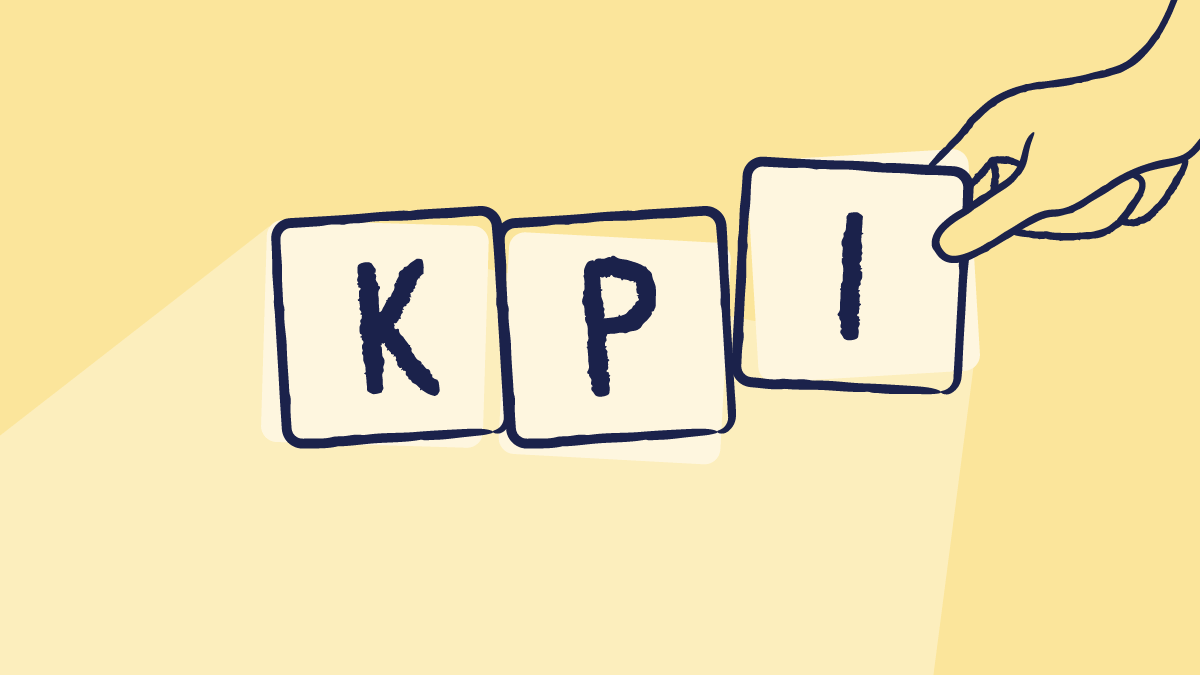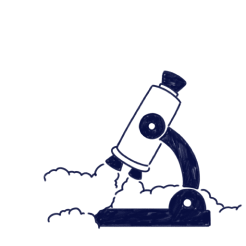
When it comes to quality management, nothing should be left to guesswork. In the highly regulated life sciences industry, progress towards quality goals is often measured through quality-specific Key Performance Indicators (KPIs) known as Quality KPIs.
Dive into our article to learn all about it!
No time to read it all? No worries: here are the key takeaways
So, what are quality KPIs?
Quality KPIs are quantifiable measurements that show how much progress has been made towards a quality-related strategic objective. Great quality KPIs should help QA teams understand if they are making the right decisions towards their objectives.
This is how it should work in practice:
- #1 QA teams set a specific objective
- #2 A subset of metrics related to the objective are defined
- #3 These metrics are turned into quality KPIs
Result: the KPIs are used to assess performance and make informed quality and business decisions, and communicate quality performance to stakeholders and management.

So in summary, quality KPIs are:
- Progress and outcome-focused at a high level and aligned with a strategic objective
- Often used to inform business decisions
- Often used to communicate quality performance to stakeholders and management
Here’s an example of a strategic objective with an assigned quality KPI for a pharma company that wants to improve operational efficiency within the quality management team:
Strategic objective: to improve the operational efficiency of the QA team by 15% in twelve months.
→ Appropriate quality KPIs for tracking progress against this objective might be "percentage of deviations resolved within 30 days” and “percentage of CAPAs closed within 30 days.”
Note: You’ll notice that the strategic objective is quantitative and time-bound, which helps when it comes to tracking it with the assigned KPIs. We’ll look at how to set strategic objectives and quality KPIs later on in the post.

And what are quality metrics?
Metrics have a broad definition and encompass all quantitative data points used to monitor, control, or evaluate processes and activities. The purpose of quality metrics is to provide detailed, granular insights into operational performance and improvement to quality management teams.
The term encompasses all quantitative measures that give quality management teams insight into operational performance, and they tend to include a great deal of data!
Examples of quality metrics for a pharmaceutical manufacturer include:
- Batch failure rate: percentage of drug batches produced that fail to meet quality standards.
- Number of deviations in X reported per month: how many deviations in a specific quality standard, procedure or specification (X) there were in a month.
What is the difference between quality metrics and quality KPIs?
If you are wondering what is the difference between quality metrics and quality KPIs, both KPIs and metrics are quantitative measurements. However, although they are used interchangeably at times, they have very different purposes:
- Metrics provide detailed data on multiple individual activities or processes.
- KPIs use selected metrics to evaluate progress toward key business objectives.
Put simply, metrics provide the data, and KPIs use that data to assess overall performance against key objectives. So, in a way, metrics are the ingredients, while KPIs are the final dish.
Before you decide which quality KPIs to measure
Before you even start wondering, “how to set my quality KPIs?”, there are a few factors to consider. KPIs are a quantifiable way to see where improvements can be made, which should inspire everyone in a company.
Unfortunately, too often, KPIs spark fear in employees of messing up. That’s because many employees confuse them with a tool for pure employee evaluation, rather than a tool to spot potential for positive change. Don’t make the same mistake!
Careful thought should be exercised when determining what to measure, how often to measure, and how to interpret the data to drive positive change.
Explain to your team the why, what, and how
Before setting KPIs, make sure every employee understands how their work contributes to the company’s goals. It’s not just HR’s job, but leadership’s responsibility to clearly communicate this vision.
Many employees don’t see this connection, which hurts engagement. Once that foundation is set, choose quality KPIs carefully and keep them focused, measurable, and relevant to performance.
- Involve your team from the start! When setting quality KPIs, involve teams and individuals. Collaborating on KPIs fosters a stronger work environment and leverages valuable frontline insights. Since employees are the ones driving results, their input ensures goals are realistic and strategic, helping prevent missed expectations that can impact morale and business outcomes.
- People before KPIs: your people should come before any numbers! When we pit humans against metrics they don’t have a say in, it results in disconnected and disengaged employees, and the whole organization will suffer.
KPIs almost always point to where processes or systems are letting the business down, not where your team is failing.
How many quality KPIs should I track?
It is a good idea to focus on 5–10 meaningful KPIs that align with strategic objectives. One quick note before we get into choosing your objectives and answering the question, “how many quality KPIs should I track?”. Not everything needs to be measured.
In fact, tracking too many quality KPIs can overwhelm teams, stretch resources thin, and dilute focus, leading to mistakes, data gaps, or misleading conclusions.
Since KPIs are tools to drive meaningful improvement, it's essential to choose only the most impactful ones that motivate teams and clearly reflect progress, rather than hinder it.
Plus, it is important to bear in mind that the essential quality KPI for your business, the truth is that it depends on your company, your industry, your product, and so on and so forth.
All that said, let’s get into it.
Recommended learning: The road to continuous improvement: lean thinking, six sigma and kaizen.
The SMART approach: How to set my quality KPIs strategically?
Each objective should be quantifiably measurable, with many organizations adopting the infamous “SMART” criteria approach to setting meaningful and actionable goals. This means that goals must be:- Specific,
- Measurable
- Achievable
- Relevant,
- Time-bound.
Having clearly defined, quantifiably measurable goals, with a timeframe to achieve them helps teams to then define corresponding quality KPIs for tracking progress.
Example of a SMART quality KPI
Let’s return to our previous example for improving operational efficiency in quality management for a moment:
- Strategic objective: To improve operational efficiency of the QA team by 15% in twelve months.
- Notice that the strategic objective is specific, quantifiable, relevant to quality management, clearly defined in terms of focus and responsibility, and with a timeframe of twelve months, all of which will help when evaluating progress. The goal of 15% increase in efficiency would have been deemed achievable to the team setting the goal.
- A suitable quality KPI for tracking progress against this objective is "percentage of deviations resolved within 30 days.”
- Importantly, the KPI would be plotted against time, and if the percentage increased as time passed, it would demonstrate progress towards achieving the overarching goal.
But what happens if your quality management system is working well?
Often in quality management, the system is already working at a compliant and efficient level, and your goals don’t have to involve costly improvements. You might have goals to maintain your current high standards. Here’s an example:
- Strategic objective: Maintain the risk management effectiveness at current levels (the level of risk may be a composite score, or rating calculated by combining several quality KPIs).
- In this case, there are a number of appropriate quality KPIs that could help monitor the level of risk, including the “number of overdue training or required audit actions” or “Number of outstanding compliance issues/risks.”
All that said, what are the most important quality KPIs and why?
Wondering what are the most important quality KPIs to track?
To get started, consider brainstorming the following five broad, strategic areas of ‘business performance’ in a group, cross-functional collaboration workshop, with the goal to set SMART strategic objectives and corresponding KPIs that directly correlate to each:
1. Risk
Risk is an (if not the most) important area to monitor carefully in GxP-regulated industries like the life sciences. After setting a SMART objective related to risk management activities, consider which of the following quality KPIs would be most useful to track your progress:
- Number of overdue training or required audit actions
- Overall audit score and risk level findings
- Number of outstanding compliance issues/risks
- Number of overdue risk assessments
- Number of recent changes (the number of potential risks goes up when the complexity of the product or the number of process steps of the product increases. Product changes are a frequent culprit of quality issues.)
Scilife has a dedicated Risk Management tool that makes risk assessment fast and efficient within your organization. These Risk Assessments can be linked to Scilife’s innovative KPI tracking solution where managers can monitor their chosen quality KPIs in real-time and so are able to immediately observe potential risks across their organization.
2. Quality response
A clear barometer of any crucial issues and future business success, your strategic objectives might relate to your engagement with customers and how your team is handling them. After all, business reputation and loyalty are entirely dependent on superior customer service. To track progress against your customer response objectives, some quality KPIs to track might include:
- Customer satisfaction scores (e.g. Net Promoter Score (NPS))
- Customer churn rate
- Product quality complaint rate / Number of customer complaints
- Number of overdue issues
- Time to solve issues
- Time to respond
- Quality of communication
- Solution effectiveness
3. Cost of quality
To track progress against finance-related objectives, choose quality KPIs that allow you to estimate the financial impacts of your processes and help determine budgets and strategies for upcoming years. Here are some metrics that can be analyzed:
#1 Cost of Poor Quality (CoPQ)
The CoPQ metric measures the impact of poor quality by putting a cost on the total loss due to quality issues. For example, unwanted overheads caused by poor systems, processes, or practices, can drastically reduce business profitability.
CoPQ can be measured by these quality KPIs, among others:
- Number of incidents
- Percentage of defects or rework needed
- Number of nonconformities
- Right-first-time percentage
- Time spent in root cause analyses or to resolve issues
- Amount of ‘wasted’ product/time
#2 Cost of High Quality (CoHQ)
Similarly, there is a metric that estimates the costs of trying to achieve excellence, the CoHQ (don’t forget that achieving high quality in your processes has a cost, too).
For example, reducing the defect rate from 1% to 0.01% might be a cost-effective goal, but reducing the defect rate down to 0.001% might be too costly and may not make sense for the quality stakeholders.
4. Productivity
Productivity is generally viewed as an aspect of human performance: how efficiently your employee or team is working. This area points to how optimized your company is and can highlight systems or processes that could do with streamlining. If your strategic objectives relate to improving productivity, you could consider selecting quality KPIs from the following list of metrics:
- Number of overdue audit findings/issues/training
- Speed of response to findings
- Number of completed training
- In manufacturing/operations: metrics such as Lot Acceptance Rate & Invalidated Out-Of-Specification Rate
KPIs that show the level of productivity help you determine which and how many resources are needed to perform processes, help you identify wastes that need to be avoided, and help you discover the amount of time that a process needs. This area of performance directly impacts budget reviews and delivery schedules, so it’s crucial to track KPIs that analyze it.
A good digital quality management system (eQMS) like Scilife plays a big role in improving productivity KPIs, as it enables your business to track and react to actions and changes rapidly.
5. Quality culture
An often overlooked but essential area that makes or breaks a business is the health of its quality culture. What’s a quality culture? A working environment where individuals are engaged with and are implementing good quality practices in their day-to-day tasks. The concept can be quite subjective but is estimated through quality KPIs that usually signify engagement with quality, governance, risk, and compliance management.
Quantifiable examples include:
- Training scores
- Percentage of policies read understood
- The time that is taken to resolve issues
- Quality Awareness Metric
- Number of change requests or events
- Improvement Acceptance Ratio - How many business suggestions are actually analyzed and implemented? If ideas are discarded directly.
How to centralize quality KPIs with an eQMS
If you’re still wondering how to set your quality KPIs effectively and automate the process, it’s time to see how you can centralize quality KPIs with an eQMS.
Scilife helps you set strategic objectives, track progress through quality KPIs software, and gain a holistic understanding of quality issues before they even arise.
Quality KPIs—when paired with the right strategic objectives—can drive positive changes in individual and team behavior, help build a thriving quality culture, and ultimately boost the quality compliance and success of your organization.
Scilife’s KPI solution visualizes and breaks down all sorts of real-time performance metrics in one centralized space, so that you’re always aware of how well your company is managing quality or other processes.
Discover areas for immediate improvement with out-of-the-box key performance indicators, filter and drill down into historic data, dive into detail with clickable graphs, export and download reports, and integrate Scilife with your own Business Intelligence tools if desired.
Scilife helps life science companies track QA KPIs! Find out more about the KPIs solution here.
FAQs
What’s the difference between leading and lagging quality metrics and KPIs?
Leading quality metrics and KPIs are forward-looking indicators that predict future performance and highlight potential issues early, enabling proactive actions and timely course corrections toward strategic goals. In the meantime, lagging quality metrics and KPIs reflect past performance. They help evaluate the effectiveness of corrective actions and measure progress already made toward strategic objectives.
What is KRA and KPI in quality?
KRAs define specific actions of improvement, while KPIs measure the success of such actions. KPIs should always be SMART. Regular tracking and adjustments ensure success in quality management.
What is SMART in KPIs?
SMART sum up five specific criteria that every quality KPI should adhere to and it means Specific, Measurable, Achievable, Relevant, and Time-bound.
How do I choose the right quality KPIs?
Choose KPIs that are aligned with your company’s strategic goals, measurable and actionable, relevant to your industry and operations, and understandable by the people tracking them.
Can quality KPIs be automated or tracked in real-time?
Yes. Modern quality management systems (like Scilife) allow for automated KPI tracking and real-time dashboards, enabling faster decisions and better visibility.
How often should I review or update my quality KPIs?
Review KPIs at least quarterly or when there’s a change in strategy, product, regulation, or process. Some fast-paced environments may require monthly or even weekly reviews. Regular reviews of quality KPIs are essential, as without monitoring, progress can go astray, and often corrective actions need to be taken to keep things on track.









